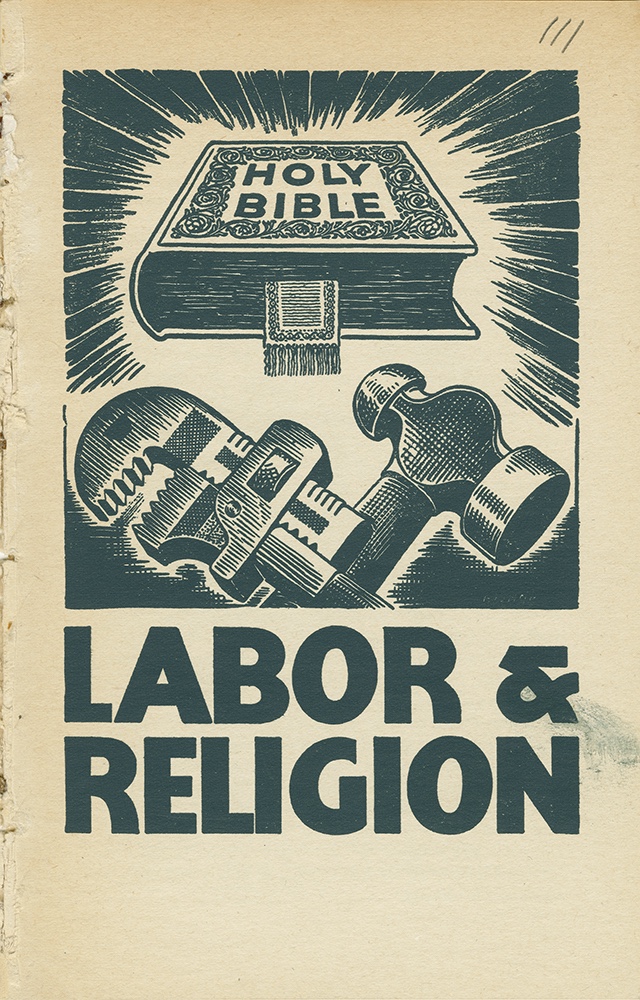Millions of Americans are enjoying a three day weekend concluding with Labor Day today. But “weekends” are an historically new phenomenon, as is the specific celebration of “labor.”
For most of history laborers toiled every day except possibly for special festivals. The leisure classes benefitted from laborers but saw no need to honor their exertions much less to limit their working hours or see to their welfare.
Christianity universalized the Jewish idea of Sabbath so that at least theoretically everyone had one day of rest. It also by enobling each person as an image bearer of God mandated regard and honor for all honest labor. The street sweeper in God’s eyes has no less importance than a king.
Of course, even in “Christian” societies, Sabbath for laborers was often disregarded by employers. And even where it was honored by law and custom, employers often disregarded the health, safety and welfare of employees. Laborers were cheap and easily could be replaced.
The labor movement began in mid-19th century America as part of a wider Christian social reform effort reacting to industrialization and urbanization. By the turn of the century the Social Gospel movement had arisen to apply the teachings of Jesus to society but most especially to labor policies and law. Laborers in industry were seen as often unreached by and overlooked by the church.
In later years the Social Gospel movement was often conflated with theological modernism. The later denied Christianity’s supernatural aspects and reinterpreted the faith as a tool primarily for moral and social uplift.
But not all early Social Gospel advocates were modernists. Many were in fact what would be called fundamentalists and holly rollers today. But with time many theologically conservative Christians disavowed the Social Gospel as intrinsically modernist. And the Social Gospel was feared as leftist, statist and even Marxist as some church thinkers and activists disdained Christian teaching about personal sin in favor Utopianism and perfecting society.
It’s often forgotten that the original Social Gospel was much more modest and orthodox, mainly focused on helping laborers achieve a basic standard of living with protections for safety. Banning child labor was a chief goal, along with guarding against exploitation of women. In this sense, the Social Gospel was extremely successful. Its original ambitions for a six day work week and limited daily hours were wildly exceeded.
One of the earliest formal church appeals for labor rights was the Social Creed approved by the Methodist Episcopal Church in 1908. It was originally crafted by the newly formed Methodist Federation for Social Service, in consultation with President Theodore Roosevelt. Much later the federation radicalized and was condemned as fellow travelers of Communism in the 1930s-1950s.
But the 1908 Social Creed was modestly rooted in Christian anthropology about the dignity of all persons. It was also quickly adopted that year by the newly formed Federal Council of Churches, which included all Mainline Protestant denominations. The council hoped to model ecumenical unity for building a more Christian society where all are cared for and protected.
Here’s that Social Creed of 1908 as first adopted by the Methodists:
For equal rights and complete justice for all men in all stations of life.
For the principles of conciliation and arbitration in industrial dissensions.
For the protection of the worker from dangerous machinery, occupational diseases, injuries and mortality.
For the abolition of child labor.
For such regulation of the conditions of labor for women as shall safeguard the physical and moral health of the community.
For the suppression of the “sweating system.”
For the gradual and reasonable reduction of the hours of labor to the lowest practical point, with work for all; and for that degree of leisure for all which is the condition of the highest human life.
For a release for [from] employment one day in seven.
For a living wage in every industry.
For the highest wage that each industry can afford, and for the most equitable division of the products of industry that can ultimately be devised.
For the recognition of the Golden Rule and the mind of Christ as the supreme law of society and the sure remedy for all social ills.
This goal of Christ’s mind and Golden Rule to reign over society was especially lofty.
The Federal Council of Churches, just months after the Methodist resolve, added this paragraph to the Social Creed:
To the toilers of America and to those who by organized effort are seeking to lift the crushing burdens of the poor, and to reduce the hardships and uphold the dignity of labor, this Council sends the greeting of human brotherhood and the pledge of sympathy and of help in a cause which belongs to all who follow Christ.
As you celebrate Labor Day with recreation and leisure, recall that the dignity and rights of laborers were won by seeking the example of Christ for wider society.





Comment by Jeff on September 7, 2020 at 4:57 pm
… the Social Gospel was feared as leftist, statist and even Marxist…
And so have those “ fears” have come to their natural fruition… as is the due of those religious leaders who taught what tickled mens’ ears, not sound doctrine…
Comment by Timothy on September 8, 2020 at 6:41 am
There’s a big difference between ‘public sector’ government unions and private sector.
The most dangerous, corrupt union is the public sector. Led by the powerful, intimidating teachers’ union, all public sector unions have our elected officials neutered and left us taxpayers paying their nearly six figure salaries, after 10 years experience, (including their lucrative benefits). Finally, their outrageous
(vastly unfunded) pensions would make your eyes roll. Moral of the story, form local groups to monitor the waste, fraud and abuse at your local councils and boards.